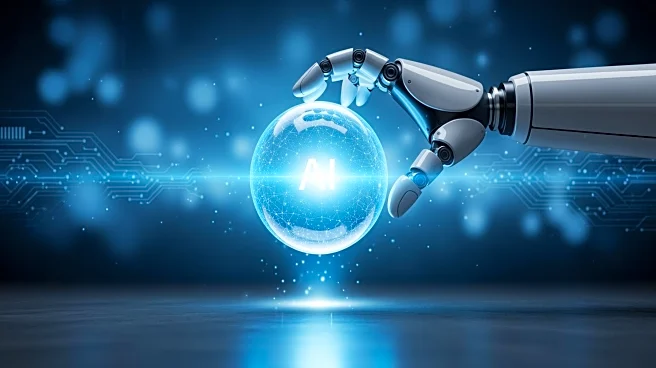What's Happening?
The concept of 'agentic AI' is gaining traction in the tech industry, promising advancements beyond current generative AI chatbots. Unlike chatbots that primarily provide information, agentic AI is designed
to autonomously perform tasks on behalf of users. This new class of AI systems can plan, act, and learn independently, potentially transforming industries by executing complex processes without direct human intervention. The Massachusetts Institute of Technology and the Boston Consulting Group have released a report highlighting the capabilities of agentic AI, describing it as autonomous teammates capable of adapting to changing conditions. Tech giants like Amazon, Google, IBM, Microsoft, and Salesforce are exploring the potential of agentic AI, with Amazon's Swami Sivasubramanian emphasizing its transformative potential. Despite the excitement, there is confusion about what truly constitutes agentic AI, as the term is often used in marketing to describe various AI functionalities.
Why It's Important?
Agentic AI represents a significant shift in artificial intelligence, with the potential to automate complex tasks across various sectors. This could lead to increased efficiency and productivity, as AI systems take on roles traditionally performed by humans. For businesses, agentic AI could streamline operations, reduce costs, and enhance decision-making processes. However, the rise of autonomous AI also raises ethical and regulatory concerns, as these systems gain more control over decision-making processes. The development of agentic AI could impact employment, as certain jobs may become obsolete, necessitating a reevaluation of workforce dynamics. Additionally, the integration of agentic AI into everyday life could alter consumer experiences, particularly in areas like online shopping and personal finance management.










